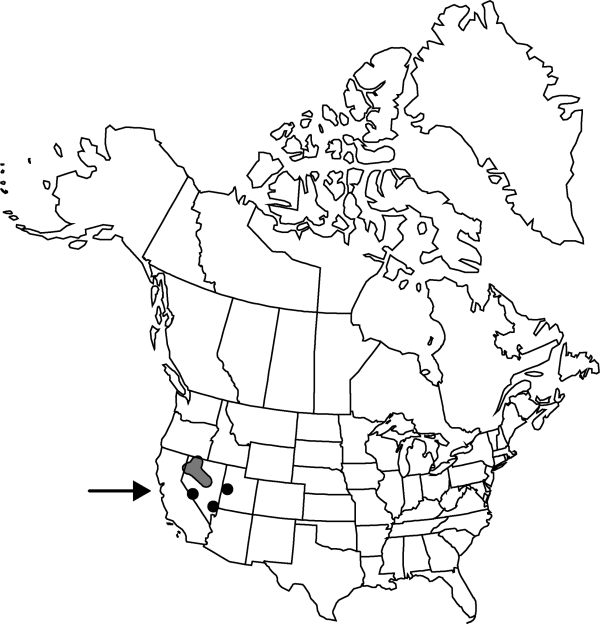Atriplex gardneri var. bonnevillensis
Great Basin Naturalist 44: 190. 1984.
Subshrubs or shrubs, dioecious or sparingly monoecious, mainly 2–8 dm, as wide or wider. Stems ascending. Leaves tardily deciduous, alternate, sessile or subsessile; blade linear to oblanceolate or obovate-spatulate, 7–40 × 2–9 mm, 2–9 times longer than wide. Staminate flowers tan to brown or rarely yellow, in glomerules 2–3 mm thick, in terminal or axillary spikes or spicate panicles 1–9 cm. Pistillate flowers in spicate panicles 8–25 cm. Fruiting bracteoles sessile or on stipes to 4 mm, body basically ovoid and bearing 4 lateral wings or rows of flattened tubercles, 5–8 × 3–9 mm, apex acuminate, 1–4 mm, tubercles lanceolate, sometimes vestigial, rarely absent, to 3 mm high. Seeds 1.5 mm wide.
Phenology: Flowering summer–fall.
Habitat: Greasewood and saltbush communities in valley bottoms and playas
Elevation: 1500-1600 m
Discussion
Of conservation concern.
The Bonneville saltbush is apparently a partially stabilized introgressant involving Atriplex gardneri var. falcata and A. canescens. The habitat is intermediate between that occupied by the parental taxa. There is evidence that the introgression is continuing in some populations at least. The plants are herein placed within A. gardneri, with which they are most similar morphologically.
Selected References
None.
